Buckle up as we race into the world of automotive brake systems, comparing two industry heavyweights: Dynamic Friction and TRW.
We’ll hit the brakes on performance, quality, and pricing, shedding light on each brand’s strengths and drawbacks.
By the end of our thrilling ride, we’ll determine which brand offers the smoothest stop for your buck!
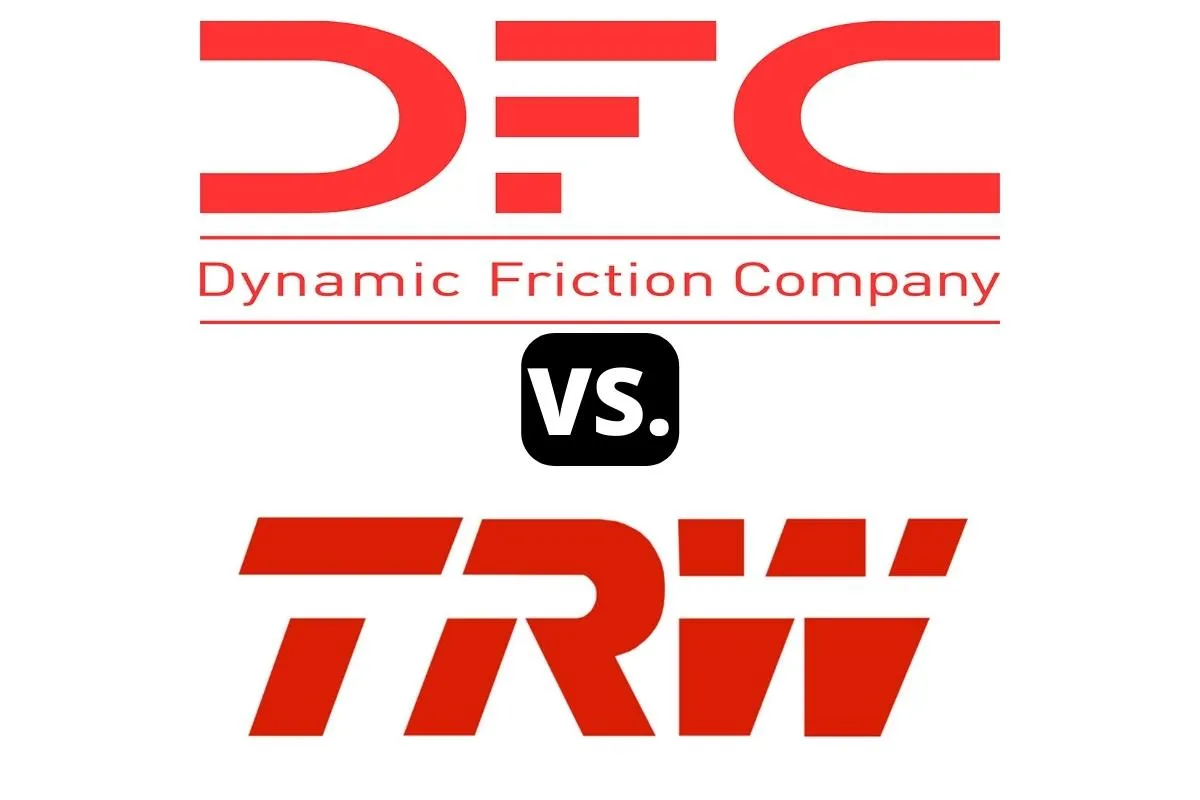
Dynamic Friction vs TRW – Brand Comparison Table
| Dynamic Friction | TRW | |
| Country of Origin | United States | United States |
| Year Founded | 2015 | 1901 |
| Made In | mostly in United States | mostly in United States, Czech Republic, China |
| Founder | Dino Crescentini | David Kurtz and four other Cleveland residents |
| Parent | Stand-alone | ZF Friedrichshafen AG |
| Overall Quality | one of the best quality pads on the market – their 5000 Series | high-quality and reliable performance |
Dynamic Friction Zinc Coated Drilled and Slotted vs TRW Coated Brake Rotors Comparison
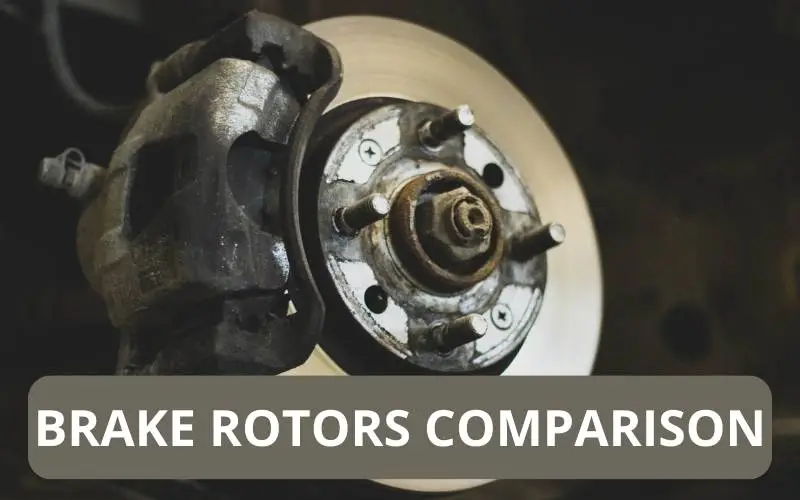
In this section, I’m going to compare the most popular Series – Zinc Coated Drilled and Slotted and Coated from both brands by various product specs & features, prices, warranty, durability, performance, stopping power and noise levels.
Here is a detailed comparison table showcasing what each brand has to offer:
| Dynamic Friction | TRW | |
| Series | Zinc Coated Drilled and Slotted | Coated |
| Material | Cast Iron | High Carbon |
| Coating | Zinc coated | Anti-corrosion coating |
| Type | Vented | Vented |
| Durability | Superior durability thanks to the premium G3000/G11H18 iron castings | Equivalent to Original Equipment (OE) standards and designed for a direct fit application |
| Performance | Improved brake grip and increased stopping power | Offers increased friction coefficient, durability against vibrations and noise, and enhanced thermal efficiency |
| Price | $36.00 – $1292.00 | $116.20 |
| Warranty | 12 months/12,000 Miles Limited Warranty | cover defects in material and poor workmanship for 12 months |
| Stopping Power Rating (More Stars = More Stopping Power) | ⭐⭐⭐⭐ | ⭐⭐⭐ |
| Noise Levels Rating (Fewer Stars = Less Noise) | ⭐ | ⭐ |
| Performance Over Stock Rating (More Stars = More Performance) | ⭐ | ⭐ |
Dynamic Friction 3000 Semi-Metallic vs TRW Ceramic Brake Pads Comparison
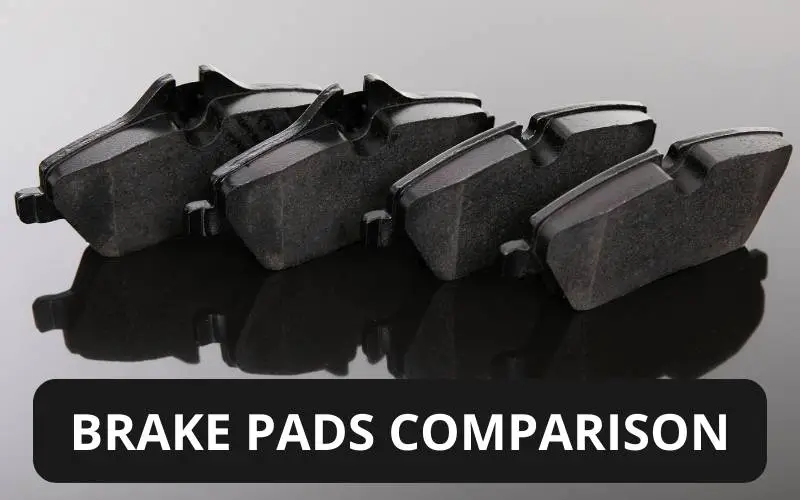
In the following section, I’m going to compare the most renowned Brake Pads series from both brands by various product specs & features, prices, warranty, performance, stopping power, brake dust accumulation and noise levels.
Here is a detailed comparison table showcasing what each brand has to offer:
| Dynamic Friction | TRW | |
| Series | 3000 Semi-Metallic | Ceramic |
| Material | Semi-Metallic | Ceramic |
| Performance | The Dynamic Friction 3000 Semi-Metallic Brake Pads are meticulously designed to offer optimal braking power and consistent friction performance across a broad temperature range. These pads serve as the perfect replacement solution for your passenger or light-duty truck. | TRW takes pride in its 100% in-house production of brake pads, coupled with state-of-the-art technology, ensure the production of brake pads that meet the highest industry standards for quality, performance, and safety. |
| Price | $18.00 – $94.00 | $21.47 – $160.36 |
| Warranty | covers defects in material and workmanship for 12 months/12,000 Miles | covers defects in materials or workmanship for a period of 12 months from date of installation or 18 months from delivery |
| Dust Levels Rating (Fewer Stars = Less Dust) | ⭐⭐⭐ | ⭐⭐ |
| Stopping Power Rating (More Stars = More Stopping Power) | ⭐⭐⭐⭐⭐ | ⭐⭐⭐⭐ |
| Noise Levels Rating (Fewer Stars = Less Noise) | ⭐ | ⭐ |
| Performance Over Stock Rating (More Stars = More Performance) | ⭐⭐ | ⭐ |
Differences
1. Overall Performance and Quality
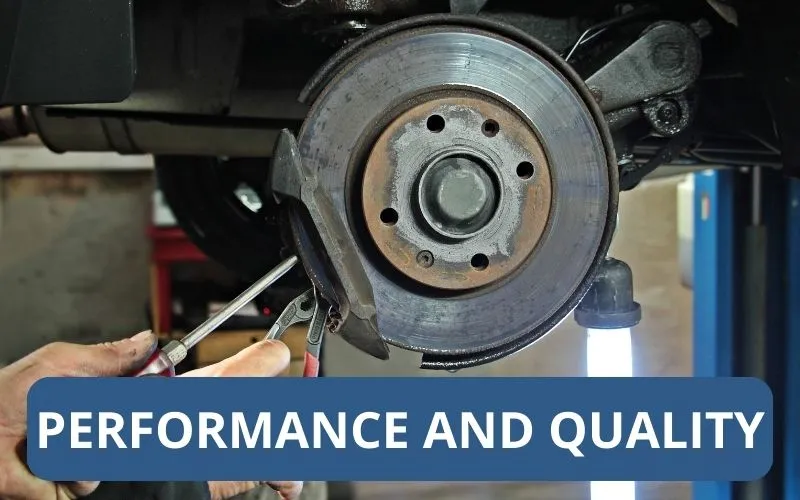
Comparing the performance and quality of Dynamic Friction and TRW brake pads and rotors, the following points can be noted:
Dynamic Friction:
- Users report that the Dynamic Friction front brake pads perform well, with no noise, similar braking quality to stock, and minimal brake dust. They are competitive with other brands like Akebono, Hawk, Centric, and Raybestos Element3.
- The DFC Geospec rotors are durable and reliable, with no complaints from users who have used them for almost a year.
- One downside is that the DFC 1000 brake pads tend to produce a lot of dust, which may not be preferable for some users.
- However, users find these brake pads satisfactory for daily driving and track day use without needing to replace them frequently.
TRW:
- TRW brake pads generally receive positive feedback from users. They are recommended for their OEM performance.
- Users report that TRW pads provide the same stopping power as other brands but produce 50% less brake dust.
- TRW pads are considered high quality due to their European manufacturing standards.
- There is no initial bite with these pads, but they also do not squeak. The stopping power is more progressive but effective with good brake pedal pressure.
In conclusion, both Dynamic Friction and TRW offer reliable and high-performing brake pads and rotors. However, if brake dust is a concern, TRW may be a better choice.
2. Rotors and Brake Pads Prices
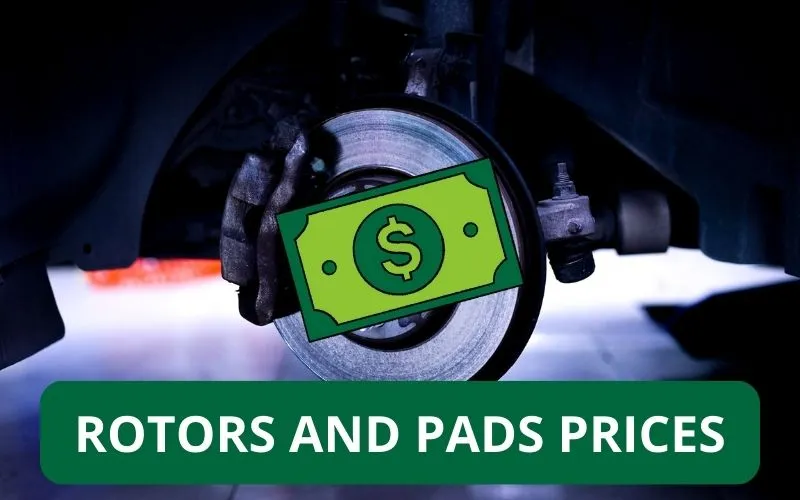
I’ve gathered some interesting information regarding the brake rotor prices for both brands. You can take a look at them in the table below:
| Dynamic Friction Rotors Prices⁽¹⁾ | TRW Rotors Prices⁽²⁾ | |
| Lowest Priced Rotors | DFC Premium Plain Disc Brake Rotor goes from $12.08 | TRW Brake Rotor goes from $72.39 |
| Most Expensive Rotors | DFC Hi-Carbon Alloy GEOMET Drilled and Slotted Front Brake Rotor goes for $1,109.42 | TRW Brake Rotor goes for $196.58 |
Alternatively, you can see the brake pads prices for Dynamic Friction and TRW below:
| Dynamic Friction Brake Pads Prices⁽¹⁾ | TRW Brake Pads Prices⁽²⁾ | |
| Lowest Priced Pads | DFC 3000 Semi-Metallic Rear Disc Brake Pads go from $11.85 | TRW Semi-Metallic Rear Disc Brake Pads go from $19.29 |
| Most Expensive Pads | DFC Track/Street Low Metallic Front Brake Pads go for $182.23 | TRW Semi-Metallic Front Disc Brake Pads go for $351.82 |
3. Pros and Cons
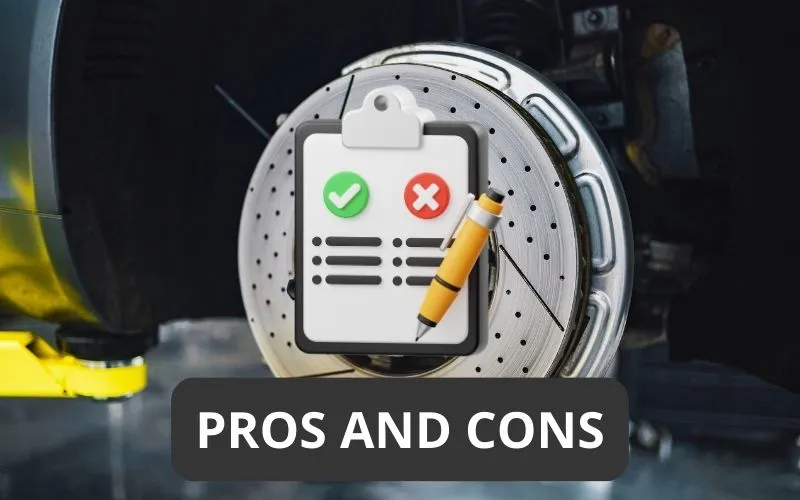
In this section, I’ve tried to showcase the most noticeable advantages and disadvantages for these two experts in brakes.
Dynamic Friction
| Pros | Cons |
| ✔ OE quality brake products | ❌ The usual excesive amount of brake dust from most of their pads |
| ✔ Wide range of products | |
| ✔ Great for track use |
TRW
| Pros | Cons |
| ✔ TRW brake pads and rotors are often considered to be a good value for the price | ❌ Their pads can produce more brake dust than usual |
| ✔ Good all-around performance | |
| ✔ Range of options |
Which Is the Better Brand Overall?
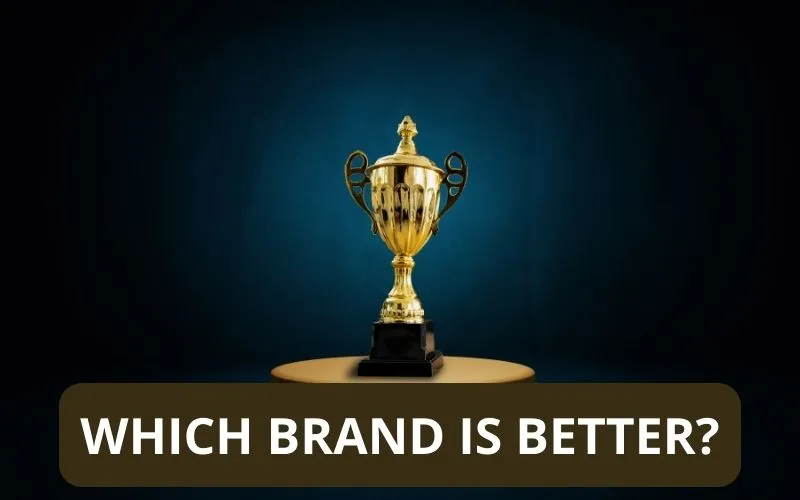
After considering customer feedback and weighing the pros and cons, I declare TRW as the overall better pick.
Users praise TRW for its good all-around performance and value for the price, while producing less dust than Dynamic Friction.
Although Dynamic Friction is commended for its track use and OE quality, the excessive brake dust is a notable downside.